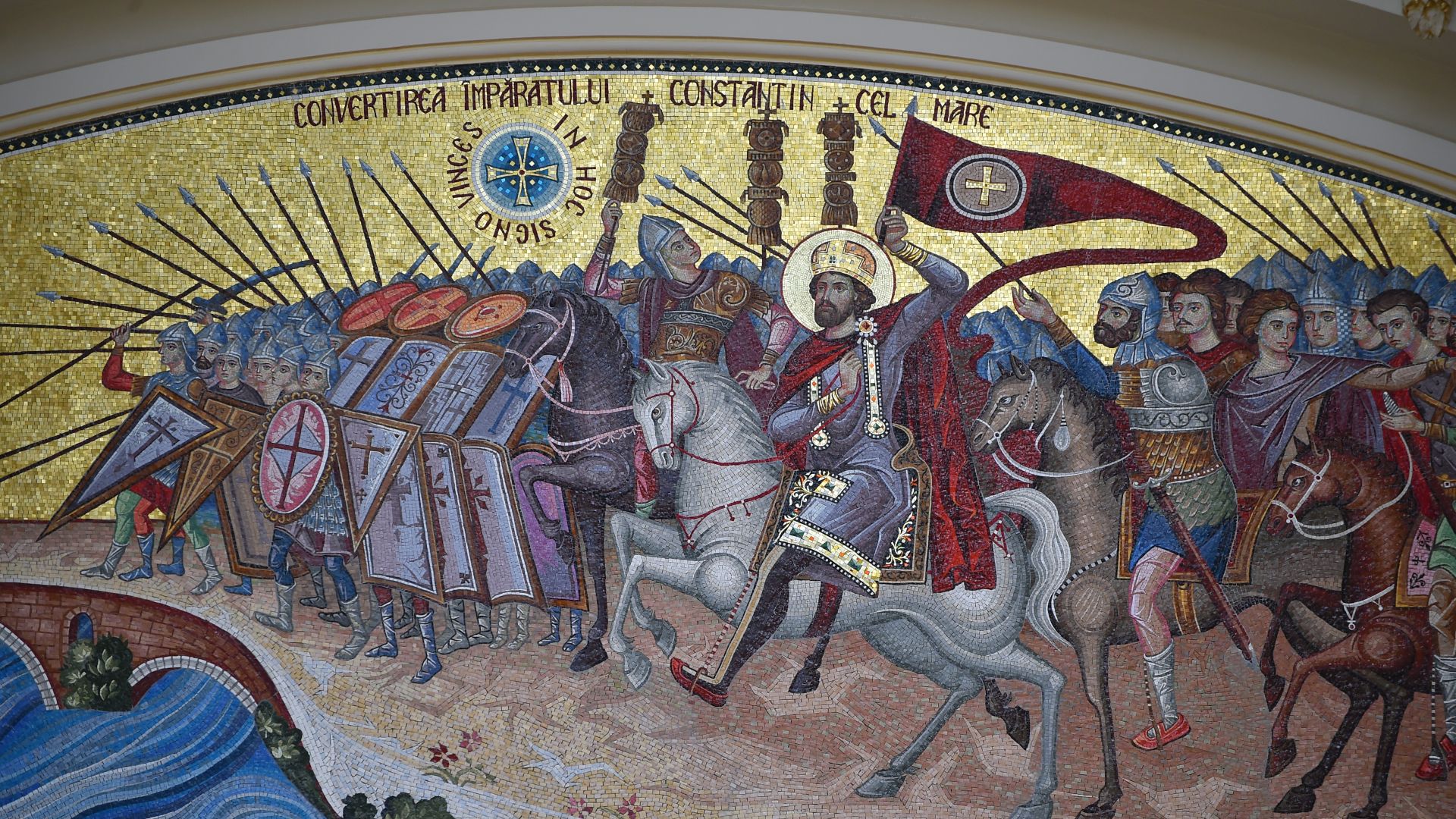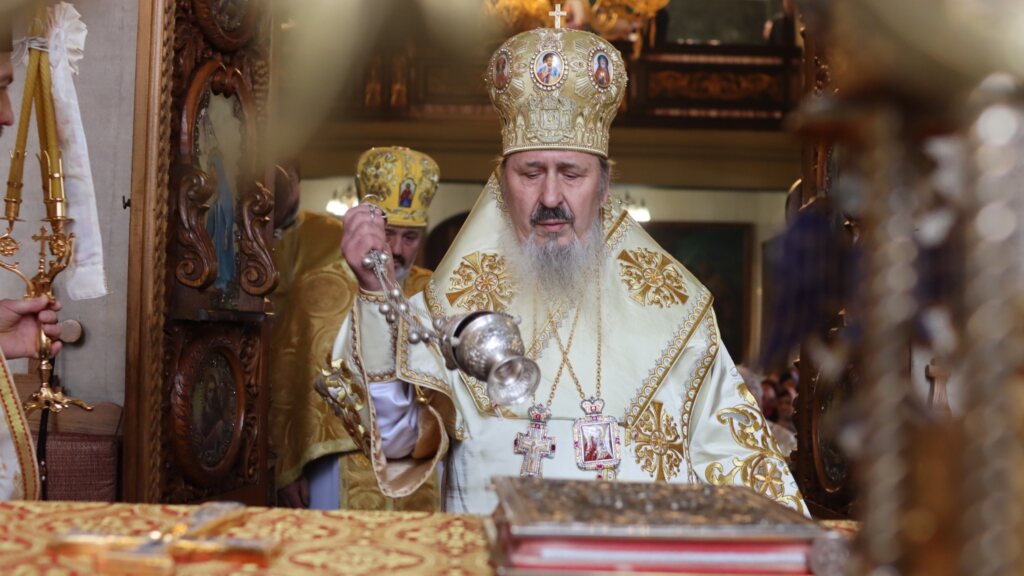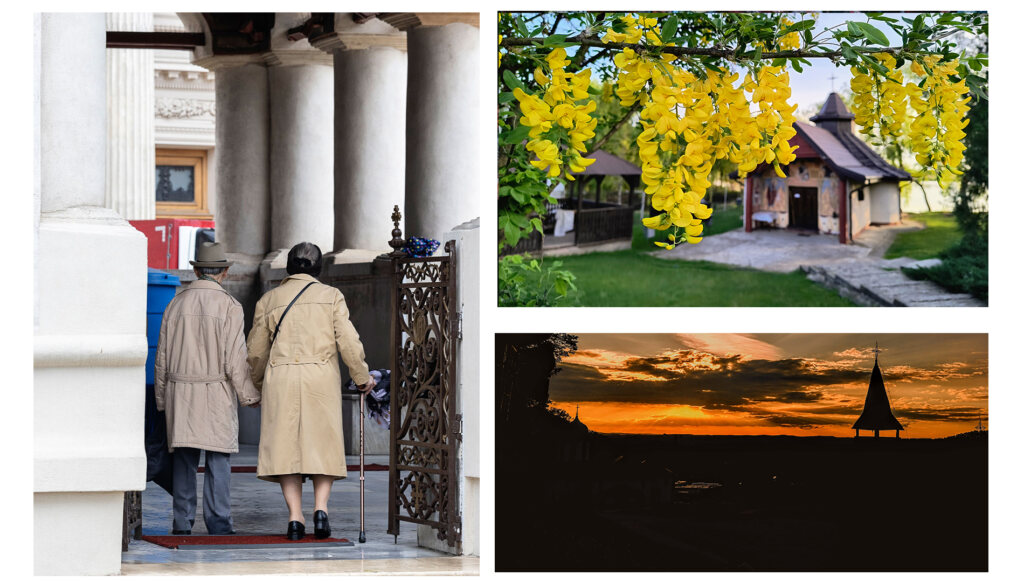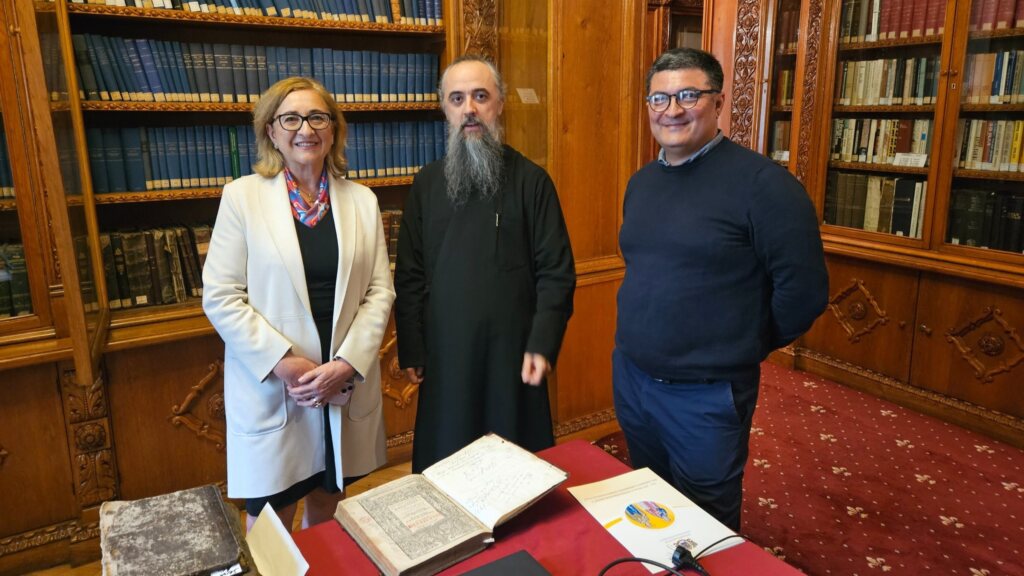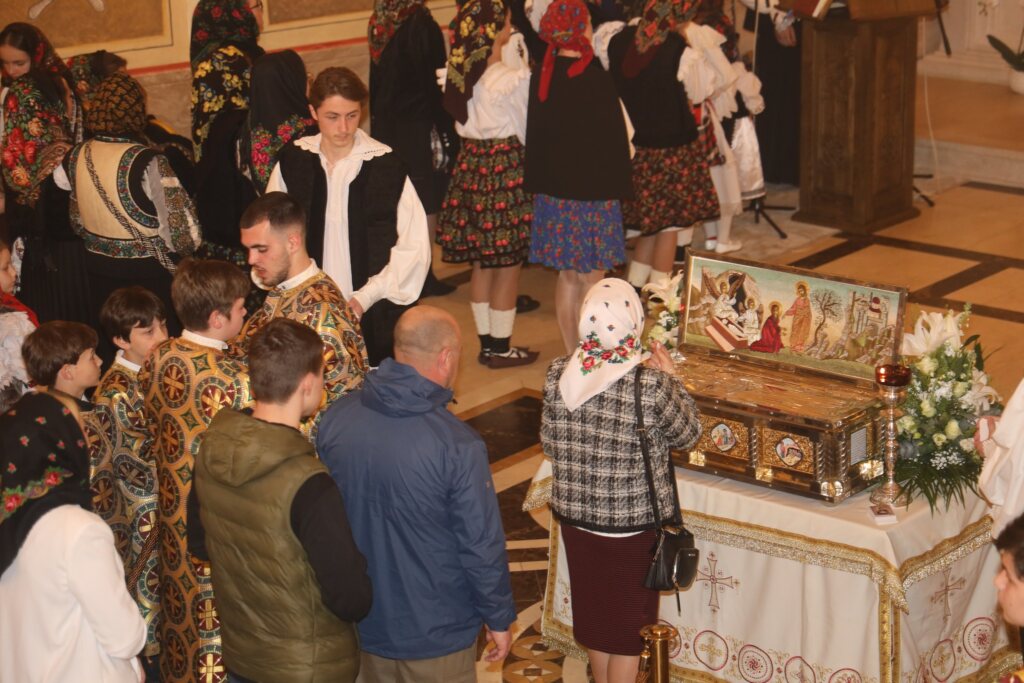His Eminence Metropolitan Nicolae Condrea of the Americas wrote a message for the feast of the Holy Emperors Constantine and Helen, focusing on St Constantine’s calling to grant freedom to humankind.
His Eminence noted that through Saint Constantine the Great we received freedom in God, ‘spiritual liberty which was hidden, held captive in a world of the vanity and insanity of the emperor’s belief in himself as a god and the giver of freedom.’
Thus Saint Constantine’s hands became Christ’s hands.
‘Saint Constantine understood his calling and accepted it. Was it possible for Constantine not to understand it? Could he have refused it? Could he have failed to see the signs of the times and where salvation was coming from? No doubt we all need to respond to these questions, for they are incumbent on us all. They are not rhetorical, but they refer to our responsibility before our conscience and before God.’
The following is the full text of the message:
Freedom in God. His Eminence Metropolitan Nicolae’s meditation on the Feast of the Holy Emperors Constantine and Helen
On May 21 of every year, the Orthodox Church honours the Holy Emperor Constantine and his mother Helen. They are called “equal to the Apostles” because of their witness and the ministry they accomplished in the Saviour’s Church.
We all know the story of Emperor Constantine’s conversion after seeing a heavenly vision of the sign of the Holy Cross. We also know the history of the deeds of the first Christian emperor, acts revealing his awareness of having been chosen by God to fulfil a mission in the Church.
But this mission was neither simple nor did it happen by chance. It was a mission to provide social freedom so that the personal freedom gained by Christ on the Cross for every human being could be fulfilled.
The freedom of which we are speaking is that of the liberation of humankind from sin and death. A spiritual liberty which was hidden, held captive in a world of the vanity and insanity of the emperor’s belief in himself as a god and the giver of liberty.
‘Saint Constantine, Helen’s son, saw the cross in the sky, and his mother discovered Christ’s Cross buried in the earth. This means that the Holy Cross connects earth and heaven together becoming a ladder of our salvation.’
– Patriarch Daniel pic.twitter.com/T7sz34tayj— Basilica.ro (EN) (@BasilicaNews) May 21, 2020
The emperor believed himself to be almighty, to the point of annulling that which God had given to man—his freedom. God Himself respects His gift, the freedom granted to man created in His image, but the emperor did not. In this manner, the emperor set himself above God, something described by the Psalmist as folly. He who puts himself in such a position cannot last. For the natural order of things is turned upside down. That which God has ordained is changed by man and becomes an order against nature.
To return to that which was ordained by God, to His Divine order, Emperor Constantine was called to liberate man. So that man could receive the news of salvation, of reconciliation with God, of deliverance from sin and death. So that man could receive the announcement of the Resurrection. Its Light could not be kept hidden under the bushel basket. No matter how powerful the earthly emperor might have considered himself, he could not conceal that which even the powers of hell could not—the Lord’s Resurrection. This bondage was conquered by the hands of Constantine, which became the hands of the Risen Christ, pulling not only our ancestors out of bondage, as we see in the icon of the Resurrection, but also the contemporary persons who were enslaved by the emperor.
Saint Constantine understood his calling and accepted it. Was it possible for Constantine not to understand it? Could he have refused it? Could he have failed to see the signs of the times and where salvation was coming from? No doubt we all need to respond to these questions, for they address us all. They are not rhetorical, but they refer to our responsibility before our conscience and before God.
We can also honour Saints Constantine and Helen through these responses, for they originate in the example of their lives and the understanding of their mission!
† Metropolitan Nicolae
Photography courtesy of Basilica.ro
Follow us on Twitter: @BasilicaNews and on Instagram: @basilica.ro
